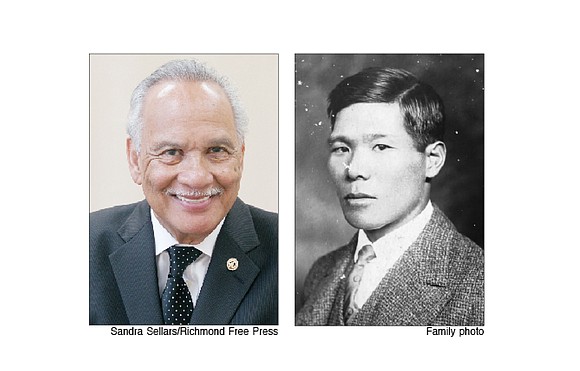The lessons of war
12/10/2016, 8:03 a.m.

Wednesday, Dec. 7, marked the 75th anniversary of the attack at Pearl Harbor.
The date, as President Franklin D. Roosevelt said at the time, lives in infamy.
More than 2,300 Americans were killed in the early morning, surprise attack on the U.S. naval base in Hawaii that plunged the nation into the horrors of World War II.
Over the next few years, more than 50 million men between the ages of 21 and 45 would sign up for the draft as required, with 10 million being inducted into the military by the end of the war in 1945.
While young men braved death and destruction around the world, people on the homefront faced rationing of certain foods, clothing, rubber, metal and gasoline to aid in the war effort. Air raid and blackout drills took place. The USO was started to boost the morale of the troops, and support groups, such as the Blue Star Mothers and the Gold Star Mothers, grew as thousands of families had loved ones serving — and killed — in the war.
The attack on Pearl Harbor also led to one of this nation’s greatest shames — the internment of Japanese-Americans. Two months after the attack, President Roosevelt signed an executive order forcing more than 100,000 Americans of Japanese ancestry to be moved from their homes and put in one of 10 camps for the duration of the war out of irrational concern about their loyalty and patriotism. Because of their perceived threat to national security, Japanese-American citizens — from young children to the aged — were rounded up and put in camps.
While it often isn’t talked about, many families were torn apart by the nation’s twisted internment policy, including the family of the late Free Press founder and editor Raymond H. Boone, whose Japanese-born father was taken by authorities from the family’s Suffolk home, never to return.
Legislation signed by President Reagan in 1988 officially apologized for the egregious act of internment, with the U.S. government paying more than $1.6 billion in reparations to more than 82,000 Japanese-Americans who were rounded up and put in these camps, and their heirs. The law acknowledged that the federal actions were based on “race prejudice, war hysteria and a failure of political leadership.”
Sound familiar? In the nascent days of the Trump administration, we believe America is headed down the same unfortunate path. During many of his campaign rallies, the president-elect continually ginned up anti-Muslim sentiment in the wake of Islamic State terrorism around the globe. And now, as he waits to take over the machinery of power in January, he has renewed his campaign promises to make Muslims in this country submit to a federal registry. Will such a registry make America any safer? Is it a first step toward rounding up innocent Americans as what happened during WWII? Is it a step toward internment, incarceration or deportation based on religious bias, national security hysteria and a lack of leadership?
At 70, President-elect Trump was born nine months after the official end of WWII, but he is old enough — although perhaps not well-read enough — to understand the lessons of the tragic events that engulfed people in several continents and ended with the United States wiping out 120,000 Japanese with the nuclear bombing of Hiroshima and Nagasaki in August 1945. We are the only nation ever to use a nuclear bomb.
In May, President Obama visited the Peace Park at Hiroshima — the first U.S. president to do so in 71 years — and laid a wreath in memory of the dead, noting that the war “grew out of the same base instinct for domination or conquest that had caused conflicts among the simplest tribes.” He called on all nations to “have the courage to escape the logic of fear” and to pursue a world of peace.
Japan’s prime minister, Shinzo Abe, who was with President Obama at that emotional ceremony, will in turn visit Pearl Harbor on Dec. 27 to remember those killed during WWII. His visit will mark the first at the naval base by a Japanese prime minister since the attack 75 years ago.
We urge the president-elect, his cabinet nominees, members of Congress, the American people and our readers to remember the lessons of the war and to act with clear thinking and resolve to ensure that the day of infamy we commemorate this week is not one we are doomed to repeat.
As we think about the past and look toward the future on this 75th anniversary of Pearl Harbor, we cannot again deliver crushing blows to Americans singled out because of their religious or ethnic backgrounds.







